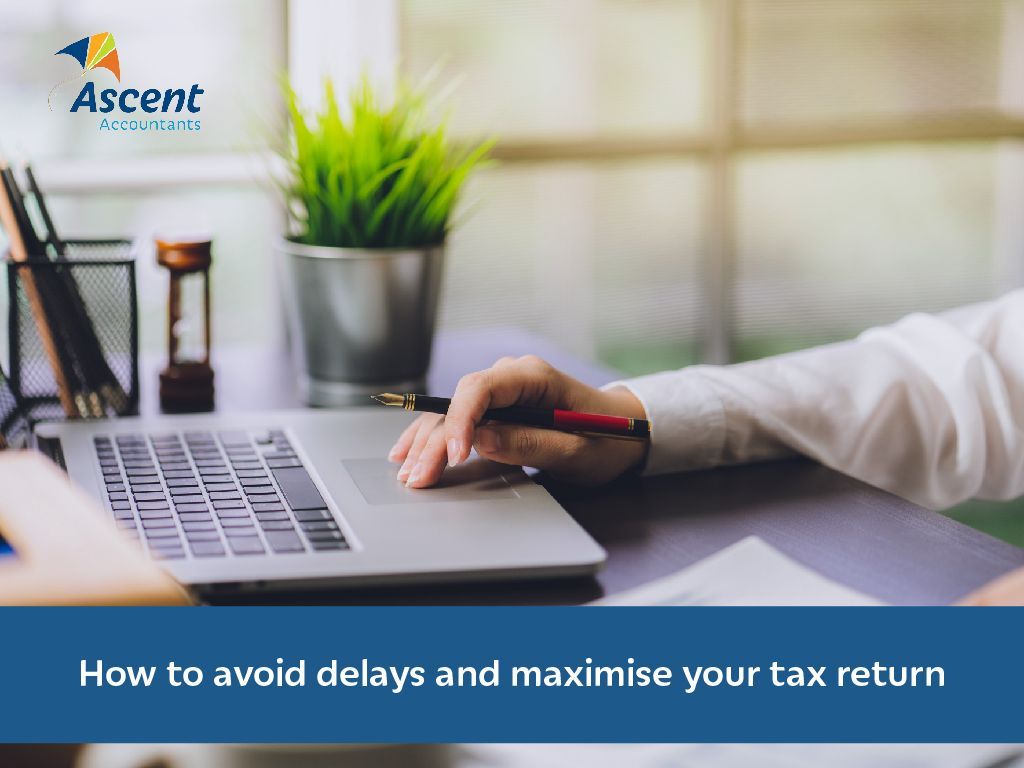How to avoid delays and maximise your tax return

We are well in the thick of tax return time, and with the cost of living being hiked left, right and centre, it seems a lot of us are talking about how we can make the most of our return.
Getting the best tax return requires foresight, planning, organization, a good tax professional who knows the system and several other key strategies to ensure your refund is the best it can be. Oh, and we all want a quick turnaround time too, don’t we?
To help your tax return reach your bank account hastily and handsomely, follow our top tips below.
Don’t rely on prefilled ATO data
Relying on the prefilled data from the ATO is not a great idea when it comes to getting the best return. While it may be a simple and quick way to push your tax return through the system to lodgement, the ATO’s prefilled information is not always the most accurate or reliable.
“How can this be?” you may think. Well, many third parties don’t actually pass on certain data until they’re legally required to, which can be well into July and in some cases, August. Therefore, you may notice income information doesn’t show in the system when you’re downloading data from the ATO prefill form.
Rather than relying on the prefill form, it’s wise to input your own income statements to ensure the correct information is being lodged. Remember too – the legal burden is on you to ensure all the correct information is there.
Avoid over-claiming on deductions
While this one may seem like a no brainer – and can legally implicate you if you’re not being truthful on your tax submission – over-inflating your expenses can be more of a hinderance than helpful.
Over-claimed deductions on tax returns will delay processing of tax returns as these lodgements will need to be looked at more closely by the taxman. So unless you have the receipts and evidence to back up your expenses, only claim what you should.
Correct claiming can also ensure you receive the most from your return, so if you’ve purchased anything for your work or business in the last financial year like tools, computers, tablets or phones, you can claim all or part of those if you use them for work.
Up to $300 can be claimed for the year items were purchased in, while cost depreciation for pricier items can be deducted as the years roll by.
Monitor your myGov account
It’s important to regularly check your myGov account for any notifications or updates from the ATO, as they may request additional information or documentation to verify your prefill data.
Being proactive and responding promptly to these requests can help avoid delays in processing your tax return, and ensure you get the best tax refund possible when the time comes.
And remember, never ignore letters or notifications within myGov (or anywhere from the ATO, for that matter) that require you to take action. The letters won’t go away and in addition to being penalised for late submission, you could miss out on valuable dollars in your tax refund.
Ensure your personal information is up-to-date
As with the above point, it’s important to ensure all your information is up-to-date to ensure a fast and efficient tax return. Even simple things like address, phone number, bank details or email address changes should be updated as soon as the change occurs to ensure any documentation or refunds are directed to the correct places.
However – it is vital you only update your personal information via the correct and safe avenues because as with our next point, you don’t want to be caught up in a scam.
Be aware of scammers
Around tax time particularly, scammers claiming to be from the ATO seem to appear in droves. Whether it’s a seemingly legitimate email with the ATO and government logos all over it, a simple text message or a phone call from a genuine-sounding ATO representative, there are, unfortunately, people out there trying to steal your hard-earned money and personal information.
Never, ever give your personal details to someone unexpectedly calling, texting or emailing you claiming to be from the ATO or other governing body, no matter how legitimate it sounds. Notifications within myGov are the best way of keeping track of genuine requests for information, as well as you phoning the ATO directly. If something seems “off”, ignore/hang up and contact the ATO yourself to clarify and report the incident, if necessary.
Use a professional accountant
Many people think lodging their tax return is easy. And for some people, like a 17-year-old with a simple employment, no mortgage, no dependants and minimal expenses, it might be. However, as you go through life, things become a little more complicated when other streams of income come in, children are born and other factors come into play to make tax returns a little more complex.
In these cases, it’s really important to consider using a professional accountant. No only will an accountant make sure all bases are covered and leave no stone unturned, they will ensure your tax return is the best it can possibly be, turned around efficiently and submitted legally.
Ensure your next tax return is the best it can possibly be, and avoid lengthy delays by using a professional, registered tax agent.
If you’re seeking a qualified accountant,
contact us today and see how we can help.
Need help with your accounting?








